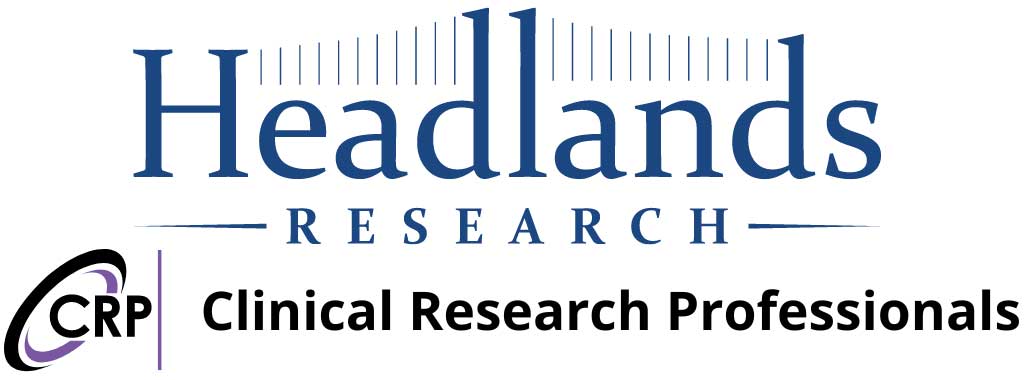General Information
Apply to Participate
If you are interested in participating, please complete the following preliminary qualification form.
We will follow-up with you after we have received your submission.
"*" indicates required fields
Ulcerative colitis (UC) is a disease in which the lining of the colon (the large intestine) becomes inflamed and develops sores (ulcers), leading to bleeding and diarrhea. The inflammation almost always affects the rectum and lower part of the colon, but it can also affect the entire colon.
The symptoms of ulcerative colitis can be mild, moderate, or severe, and can fluctuate over time. Periods of active symptoms are called "flares." When symptoms are under control and the colon is not inflamed, the ulcerative colitis is considered "in remission."
The main goals of treatment for ulcerative colitis are to:
Ulcerative colitis is part of a group of conditions called "inflammatory bowel diseases" (IBD). Crohn disease is another inflammatory bowel disease, although that disease can affect the entire digestive tract (anywhere from the mouth to the anus), while ulcerative colitis only affects the colon. IBD is not the same as irritable bowel syndrome (IBS).

If you are interested in participating, please complete the following preliminary qualification form.
We will follow-up with you after we have received your submission.
"*" indicates required fields
"*" indicates required fields

Dr. Terry Weis is board certified by the American Osteopathic Board of Orthopedic Surgery and has been practicing medicine for over 45 years. He earned his medical degree at Kansas City College of Osteopathic Medicine and completed his residency at Normandy Osteopathic Hospital in St. Louis, Missouri. Dr. Weis most recently practiced medicine at SSM Orthopedics in Bridgeton, Missouri.
Dr. Weis is the Co-Founder of the SSM Joint Replacement Center located at DePaul Health Center in St. Louis, Missouri. Over the years, Dr. Weis has served as Chairman for the Department of Orthopedics, ER Review Committee, Surgical Review Committee, and the Director of Medical Education and Chief of Staff.
Dr. Weis received the Donald Siehl Appreciative Award from the Osteopathic Academy of Orthopedics (AOAO) at its 2012 Annual Conference in Colorado Springs. He was only the sixth person to win the rarely bestowed honor. This award is presented to a member who, in the opinion of the Board of Directors, has made a major contribution and commitment to the American Osteopathic Academy of Orthopedics during his/her professional career. Dr. Weis has treated generations of patients over the years and has impeccable bedside manner.

Dr. Daniel Mattson is board certified in neurology and clinical neurophysiology. He earned his medical degree from the University of Missouri - Columbia School of Medicine and completed his internal medicine training at SSM Health St. Mary's Hospital - St. Louis. He completed his neurology residency at Harvard Medical School at Beth Israel Deaconess Medical Center and the The Children's Hospital in Boston, where he served as clinical chief resident. Dr. Mattson completed his fellowship in epilepsy and clinical neurophysiology at Saint Louis University School of Medicine. Dr. Mattson is the director of epilepsy services for SSM Health Neuroschiences.

Dr. Steve Fern is board certified in Internal Medicine and Gastroenterology. He is a National Board of Osteopathic Medical Examiners Diplomat and has been a Fellow of the American College of Osteopathic Internist since 2000. His professional memberships include the American Osteopathic Association, the American College of Osteopathic Internists, the Missouri Association of Osteopathic Physicians and Surgeons, the American College of Gastroenterology, the American Society of Gastrointestinal Endoscopy, and the American Association for the Study of Liver Disease. He is the President of the Saint Louis Capsule Endoscopy Club.
Dr. Fern did his undergraduate work at the University of Dayton and is a graduate of the University of the New England College of Osteopathic Medicine.
Dr. Fern is active in the teaching of programs of several medical schools and has lectured extensively on several GI topics locally, nationally, and abroad. He is passionate about teaching health care providers about colon cancer, colon cancer screening, performance of a quality colonoscopy, as well as, wireless capsule endoscopy.
Dr. Fern cares for adults with gastrointestinal disorders with an emphasis on colon cancer screening, Gastro Esophageal Reflux Disease (GERD), including Barrett's esophagus, and the care and treatments of patients with inflammatory bowel disease, including ulcerative colitis and Crohn's disease. His special interest include liver disease (including the treatment of patients with Hepatitis C), and esophageal motility disorders. He has expertise in wireless capsule endoscopy, and the SmartPill GI motility testing.

Dr. Robyn Haithcock is board certified in Internal Medicine and Gastroenterology. Dr. Haithcock is an Associate Professor at Kirksville College of Osteopathic Medicine. His practice as a gastroenterologist specializes in Diagnostic and Therapeutic Endoscopy and ERCP, Manometry, Laser, Laparoscopy and Cognitive Gastroenterology.
Dr. Haithcock has participated in clinical research for Interferon and the F.A.S.T clinical trial as well as a number of retrospective data collection trials.
Dr. Haithcock earned his medical degree from Oklahoma State University College of Osteopathic Medicine. His residency and internship was performed at Michigan State University, Detroit Osteopathic Hospital in Highland Park, Michigan. A gastroenterology clinical fellowship was at Oakland General Hospital in Detroit, Michigan. He is a Fellow in the American College of Osteopathic Internists. He is a member of the American Society Gastrointestinal Endoscopy, the American College of Gastroenterology, and a member Fellow at the American College of Osteopathic Physicians and Surgeons.

Dr. Fredric Prater is board certified in Family Medicine and has been in practice for over 29 years. He completed his residency at University General Hospital in Seminole, Florida. He earned his medical degree at Kansas City College of Osteopathy. Dr. Prater is a member of the American Osteopathic Association, the Missouri Association of Osteopathic Physicians and Surgeons and the American College of Osteopathic Family Physicians. He is ranked 5 out of 5 stars on the patient online review systems. Dr. Prater’s patient database numbers 3,500+ between the ages of 18 and 65 years. The practice he is a member of has a base of over 10,000 among the physicians.

Dr. Siddharth Kaul has been practicing medicine for over 17 years and is board certified in Neurology. He specializes in migraines, epilepsy, myasthenia gravis and Parkinson’s disease. Dr. Kaul’s online patient satisfaction rating is five stars out of five stars.
He attended medical school at A.C.P.M. Medical College in India and completed his residency training at Southern Illinois University School of Medicine, Department of Neurology. He has a PhD in Neuroscience and has conducted extensive research for seven years in the field of Parkinson’s disease and movement disorders. His experience also includes treating stroke, neuropathy, epilepsy, infectious meningitis and pediatric neurology. He is highly proficient in performing electromyography (EMG) and reading electroencephalogram (EEG) tracings.
Dr. Kaul is a member of the American Headache Society, Medecins Sans Frontieres (MSF)/Doctors Without Borders, The Michael J. Fox Foundation for Parkinson’s Research and the American Academy of Neurology. He speaks proficiently in the languages of English, Hindi and Kashmiri.

Dr. Richard Summa is board certified in Internal Medicine, Pulmonary Diseases and Critical Care Medicine. His special interests include asthma, COPD, interstitial lung disease, tuberculosis and autoimmune lung disease. He has worked extensively helping patients with tobacco cessation.
Dr. Summa earned his medical degree at St. Louis University Medical School. He did his internship at St. Mary's Health Center in St. Louis, Missouri. He then attended the Naval Aviation Medical Institute in Pensacola, Florida and became a Naval Flight Surgeon serving with the United States Marine Corps for 3 years. Dr. Summa completed his training with residency training in Internal Medicine and fellowship training in Pulmonary Diseases and Critical Care medicine at Balboa Naval Hospital in San Diego, California.
Dr. Summa completed 10 years of active duty service with the United States Navy based at the Naval Hospital in San Diego and participated in multiple deployments including 2 tours in the Middle East during the Gulf War conflicts. He then moved to St. Louis, Missouri where he has been practicing Pulmonary and Critical Care Medicine in a multi specialty medical group.
Dr. Summa has expertise in fiberoptic bronchoscopy, thoracentesis and pulmonary function testing and interpretation. He is a fellow of the American College of Chest Physicians. He has been recognized as one of the Top Doctors in St. Louis by his peers 2009-2012 and has been recognized with the Most Compassionate Physician award 2010 and 2011.

Dr. Anthony Margherita, is a Principal Investigator with Clinical Research Professionals. He has been in private practice since 2003 as the Medical Director of West County Spine & Sports Medicine. Dr. Margherita is board-certified in physiatry (physical medicine & rehabilitation) and by the American Board of Electrodiagnostic Medicine specializing in non-operative spine care and sports medicine. Dr. Margherita has over 20 years of experience in evaluating disorders of nerve and muscle and has done over 20,000 procedures. He has extensive research experience as a Principal Investigator in over 85 trials. His trial experience includes acute and chronic pain treatment, osteoarthritis, pain medication, narcotic pain medication, diabetic peripheral neuropathy, bursitis, migraine headaches, restless leg syndrome, Parkinson’s disease, postherpetic neuralgia, muscle strain, chronic low back pain, multiple sclerosis, tendonitis, and gout.
Dr. Margherita earned his medical degree from Georgetown University’s School of Medicine in Washington, D.C. in 1985 and completed his residency in Physical Medicine and Rehabilitation at the U.C. Davis Medical Center in 1989. From 1989 through 1997, Dr. Margherita served on the faculty at the University of Washington in Seattle before moving to St. Louis to serve as a faculty member at Washington University School of Medicine in 1997. He lectures locally, regionally, and at the national level on spine, sports, and musculoskeletal medicine and pain mechanisms. He has been a study section panelist for the National Institute of Health, a research review panelist for the National Institute for Disability and Rehabilitation Research, and is currently serving as an international advisory editor for the International Encyclopedia of Disability. Because of his outstanding clinical skills and expertise, Dr. Margherita has been honored as being among the “Best Doctors in America” for nearly 15 years. He also serves as the Medical Director for the Go! Saint Louis Marathon and as a consultant for Major League Baseball.

Dr. Timothy Jennings is board certified in Family Medicine and has been in practice for over 21 years. He is one of the country’s top ranked doctors. Based on an in-depth analysis of Dr. Jennings’ network, credentials and experience, he has been found to be in the top 20% of doctors nationwide by Better Doctors. As a family practitioner, Dr. Jennings is often the first doctor a patient sees for assessment of potential health problems and the management of chronic conditions.
Dr. Jennings earned his medical degree at Kirksville College of Osteopathic Medicine and completed his residency at Normandy Hospital and Deaconess Hospital West (now Des Peres Hospital) in St. Louis, Missouri. Dr. Jennings is a member of the American Osteopathic Association, the Missouri Association of Osteopathic Physicians and Surgeons, the Missouri Association of Osteopathic Family Physicians, and the Saint Louis Association of Osteopathic Physicians and Surgeons. He is the chairman of the MAOPS Membership Committee as well as a member of the MAOPS Physicians Health Committee and the MAOPS Legislative Committee. Dr. Jennings is a past president of MAOPS.
Dr. Jennings is a board member of Primaris. Primaris has played an integral role in improving healthcare for Missouri’s one million Medicare beneficiaries and beyond by providing a team of experts in assisting providers with quality improvement, medical case review, electronic data reporting and health information technology.
Dr. Jennings has a large, successful practice with over 4,300 patients in his database. Rankings from patients per online websites rate Dr. Jennings 5 stars out of a possible 5 star rating. Between Dr. Jennings and his partners, they have well over 10,000 patients.
